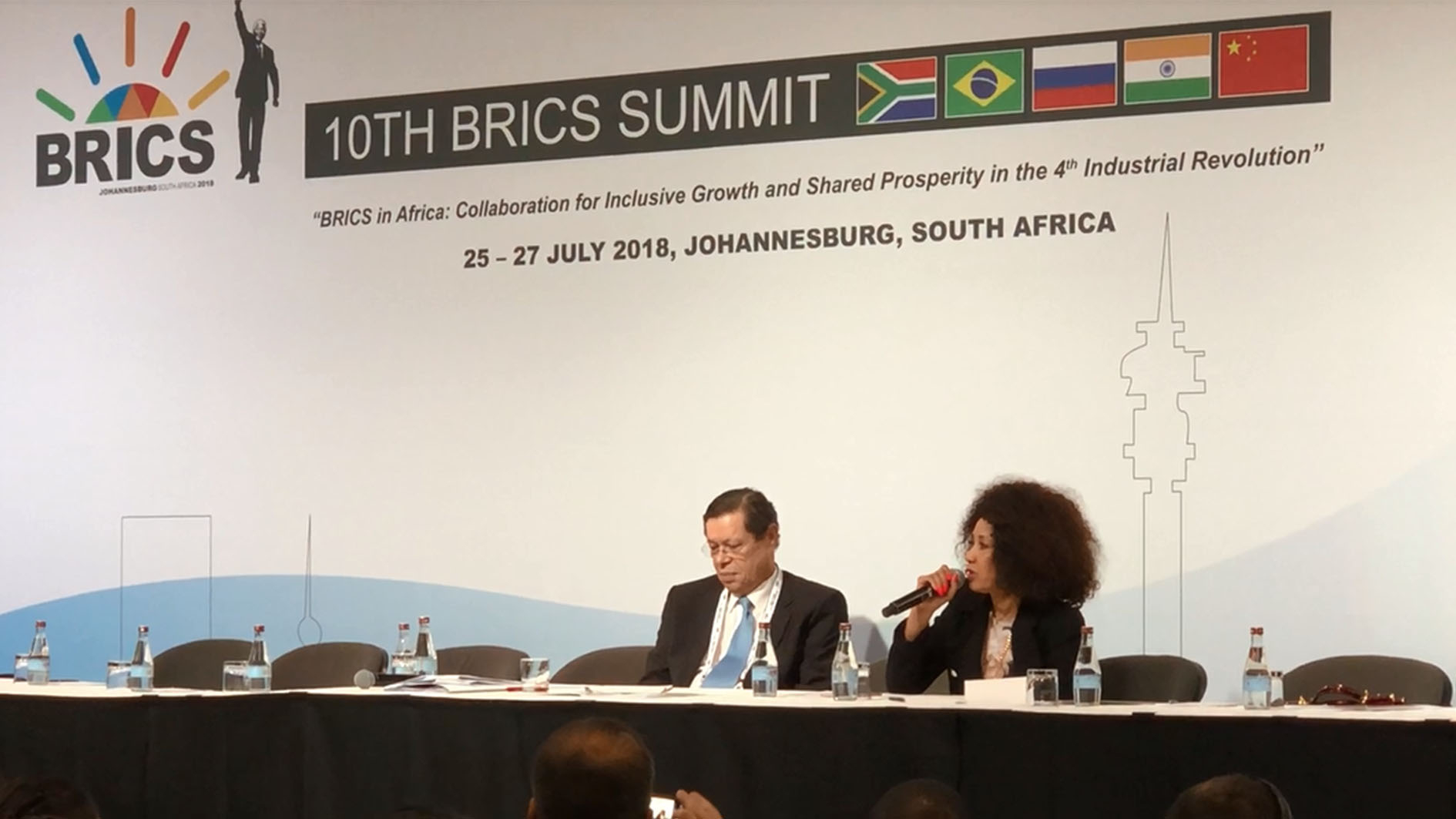Africa has long been a continent of vast potential, boasting an abundance of natural resources, a youthful population, and a growing consumer base. However, this potential has often been hindered by factors such as political instability, corruption, and a lack of infrastructure. In recent years, the emergence of the BRICS (Brazil, Russia, India, China, and South Africa) has brought a new dynamic to Africa’s development landscape. These countries, with their vast economic power and experience in emerging markets, have invested heavily in Africa’s infrastructure, energy, and mining sectors.

Image: news.cgtn.com
While BRICS investment has undoubtedly contributed to Africa’s economic growth, it has also raised concerns among some stakeholders, particularly trade unions. Trade unions represent the interests of workers and are concerned that the BRICS presence in Africa could lead to exploitation and a race to the bottom in terms of labor standards. They argue that BRICS companies often import their own workers, displacing local workers and suppressing wages. They also voice concerns about the environmental and social impact of BRICS investments, as these companies have often been criticized for lax environmental standards and a lack of transparency in their operations.
In response to these concerns, African trade unions have begun to organize and mobilize against the growing BRICS presence in Africa. They have formed alliances, such as the Southern African Trade Union Coordination Council (SATUCC), to coordinate their efforts and advocate for the protection of workers’ rights. They have also launched campaigns to raise awareness about the potential negative impacts of BRICS investment and to pressure governments to adopt more stringent regulations.
One of the key areas of concern for trade unions is the lack of labor standards in many BRICS countries. In China, for example, trade unions are tightly controlled by the government, and workers have limited freedom to organize and bargain collectively. This has led to a situation where Chinese companies operating in Africa often pay their workers less than local workers and provide them with fewer benefits.
Another area of concern is the environmental impact of BRICS investments. Many BRICS companies have been criticized for their lack of environmental stewardship, and their operations in Africa have often been linked to deforestation, pollution, and other environmental problems. Trade unions argue that BRICS companies must be held accountable for their environmental impacts and that they should be required to adopt more sustainable practices.
The concerns of African trade unions are valid, and they deserve to be taken seriously. BRICS investment in Africa has the potential to bring significant benefits, but it is important to ensure that these benefits are shared equitably and that the rights of workers are protected. Trade unions have a vital role to play in ensuring that the BRICS presence in Africa is a positive force for development.
In conclusion, African trade unions are raising their voices against the growing BRICS presence in Africa. They are concerned about the potential for exploitation and a race to the bottom in terms of labor standards. They are also concerned about the environmental and social impact of BRICS investments. Trade unions are calling for more stringent regulations to protect workers’ rights and the environment. They are also urging BRICS companies to adopt more sustainable practices. The concerns of trade unions are valid, and they deserve to be taken seriously.

Image: www.biznews.com
African Trade Unions Fighting The Brics Presence In Africa






